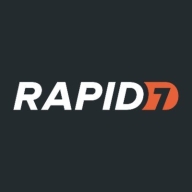

Vectra AI and Rapid7 InsightIDR are key security platforms competing in advanced threat detection and security intelligence. Rapid7 InsightIDR has an edge with its extensive features.
Features: Vectra AI is known for advanced threat detection, enhancing network visibility and real-time analysis. Rapid7 InsightIDR features comprehensive threat intelligence and insightful reporting, along with enhanced endpoint visibility, offering an appealing feature set.
Room for Improvement: Vectra AI could improve integration flexibility, report customization, and user interface intuitiveness. Rapid7 InsightIDR needs better log management, alert accuracy, and integration capabilities, which could enhance user experience.
Ease of Deployment and Customer Service: Vectra AI is praised for straightforward deployment and consistent support, while Rapid7 InsightIDR is easy to use but could improve deployment speed and support responsiveness to match Vectra AI's service levels.
Pricing and ROI: Vectra AI offers competitive pricing with significant ROI due to detection accuracy and efficiency. Rapid7 InsightIDR is considered costly but provides substantial ROI through its extensive features, valued by users for long-term investment.
| Product | Market Share (%) |
|---|---|
| Vectra AI | 2.8% |
| Rapid7 InsightIDR | 2.2% |
| Other | 95.0% |

| Company Size | Count |
|---|---|
| Small Business | 20 |
| Midsize Enterprise | 5 |
| Large Enterprise | 6 |
| Company Size | Count |
|---|---|
| Small Business | 9 |
| Midsize Enterprise | 10 |
| Large Enterprise | 29 |
Parsing hundreds of trivial alerts. Managing a mountain of data. Manually forwarding info from your endpoints. Forget that. InsightIDR instantly arms you with the insight you need to make better decisions across the incident detection and response lifecycle, faster.
Vectra AI offers advanced hybrid network and identity security, detecting threats traditional tools miss. It uses AI to identify lateral attacks and credential misuse, providing a proactive defense for enterprises.
Vectra AI enhances security by using AI-driven detection across network, cloud, and identity layers, surpassing EDR and SIEMs by offering real-time threat detection. It ensures continuous observability and automates SOC workflows to minimize manual efforts, creating an efficient security environment. Its AI-powered approach significantly reduces noise, focusing on true threats, and provides insights into complex threat landscapes, with seamless integration into environments like EDR and Office 365.
What are Vectra AI's key features?Vectra AI is utilized across industries for comprehensive network and anomaly detection. Organizations deploy it for threat hunting and incident response, monitoring both on-premises and cloud activities. By placing sensors across sites, they optimize security practices and streamline their detection processes.
We monitor all Extended Detection and Response (XDR) reviews to prevent fraudulent reviews and keep review quality high. We do not post reviews by company employees or direct competitors. We validate each review for authenticity via cross-reference with LinkedIn, and personal follow-up with the reviewer when necessary.